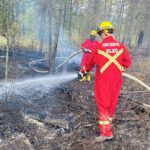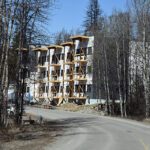Home »

Report on Budget 2020 consultation released
 The multi-party Select Standing Committee on Finance and Government Services, which included Columbia River-Revelstoke MLA Doug Clovechok, has released its unanimous report on British Columbia’s Budget 2020 consultation.
The multi-party Select Standing Committee on Finance and Government Services, which included Columbia River-Revelstoke MLA Doug Clovechok, has released its unanimous report on British Columbia’s Budget 2020 consultation.
The report includes 106 recommendations for the next provincial budget and provides a summary of the concerns and priorities put forward by British Columbians.
“The committee is grateful to everyone who took the time to share their views and bring attention to the challenges and opportunities facing the province,” said Bob D’Eith (MLA Maple Ridge-Mission), committee chair. “Several issues emerged as key areas for action, including providing comprehensive supports to youth formerly in care and advancing water sustainability.”
Dan Ashton (MLA Penticton), deputy chair, said, “Committee members also recognize the critical challenges facing the forestry sector and the need to support affected workers and communities. Ongoing concerns related to resources for addressing invasive species, fish and wildlife conservation and management, and climate change and natural disasters were highlighted as well.”
The budget consultation is typically held every fall. This year, the consultation ran from June 3 to June 28, 2019, to enable the committee to deliver its report earlier in the budget process.
During the consultation period, the committee heard 276 presentations at 15 public hearings in communities throughout British Columbia, including Kimberley on June 11, and received 496 written submissions and 452 responses to an online survey that was based on questions in the Budget 2020 Consultation Paper released by the minister of finance on June 3.
Read the full report, which outlines key areas British Columbians want considered in budget deliberations, such as support for youth, water sustainability, affordable housing, invasive species control, fish and wildlife conservation, wildfire, flood and earthquake preparation and supports, education and natural resource development.
As the executive summary points out, the numbering of recommendations does not represent priority; the report is organized thematically and the themes are presented in alphabetical order.
e-KNOW







